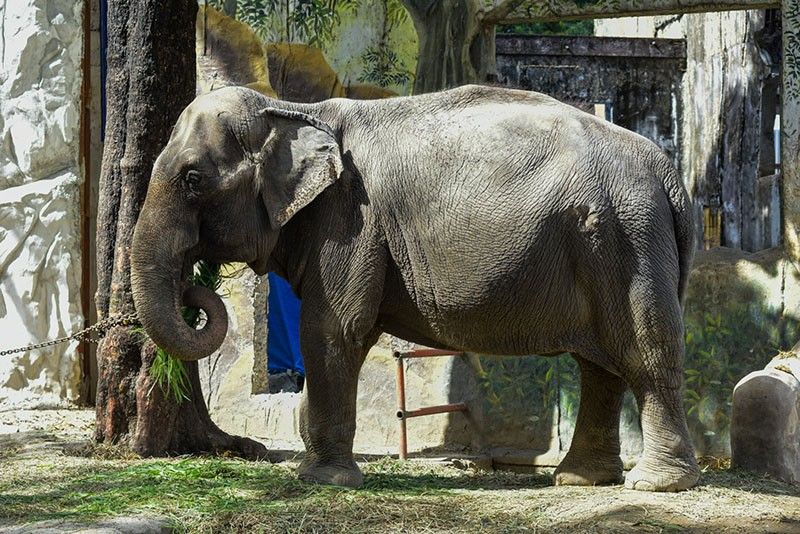Mali’s lonely life ended with congestive heart failure

MANILA, Philippines — The Philippines’ lone elephant Mali — who spent decades in solitary confinement deprived of the close-knit matriarchal herd common for her kind — had died of congestive heart failure, the Manila city government said on Wednesday.
Manila Zoo's resident elephant also suffered from cancer and had multiple affected organs that restricted blood circulation, a necropsy conducted on her remains showed.
Mali was shipped to the Philippines at 11 months old after being “gifted” by the Sri Lankan government to the late dictator Ferdinand Marcos Sr. in 1981. She stayed at the Manila Zoo for nearly all of her life, at some points exhibiting signs of depression and psychological stress as well as a foot disease.
The nearly 50-year-old elephant likely died of illnesses due to old age, officials of the Manila Zoo and Manila City Mayor Honey Lacuna said in a press briefing, as the average life span of an elephant of her kind was 40 to 45 years old.
The elephant exhibited signs of restlessness on Friday last week and passed away Tuesday afternoon. She did not appear to have prior symptoms, an official of the Manila Zoo said.
“The death of Mali was sudden. Among animals, there’s something that we call asymptomatic symptoms, where she could have been experiencing an illness that we could not observe. Animals are not like people who can talk or be asked about their condition,” the Manila Zoo official said.
Besides seeing signs of cancer, the necropsy also showed that Mali had a uterus with "pus deposits" as well as a slightly inflamed kidney, the zoo official said.
While Lacuna acknowledged that there were widespread calls to free Mali in recent years — a campaign that snagged the support of renowned wildlife expert Jane Goodall and global celebrities – the city mayor insisted that the elephant could not have survived being taken out of captivity.
“We don’t know what kind of environment awaited her if we returned her or if she would have adapted to the new environment,” Lacuna said.
“(Returning Mali) was never considered,” Lacuna added.
With the loss of Manila Zoo's — and the whole country's — childhood icon, Lacuna said that there are already plans to replace the elephant with another.
“There is a plan to replace Mali. The Sri Lankan government, during one of their visits here, had committed to us that they would give another elephant. So now we will be informing them,” Lacuna said.
Animal welfare group People for the Ethical Treatment of Animals (PETA) mourned the death of Mali on Wednesday, highlighting that the elephant had "suffered" for nearly five decades due to "indifference and greed."
“Mali died the same way she had lived for nearly 50 years—alone in a barren concrete pen,” PETA said.
“Despite PETA’s repeated warnings, zoo and city officials ignored Mali’s clearly painful foot problems, the leading cause of death in captive elephants—and if they caused her death, too, every person who denied her veterinary care and blocked her transfer to a sanctuary should be held accountable,” the group added.
- Latest
- Trending
































